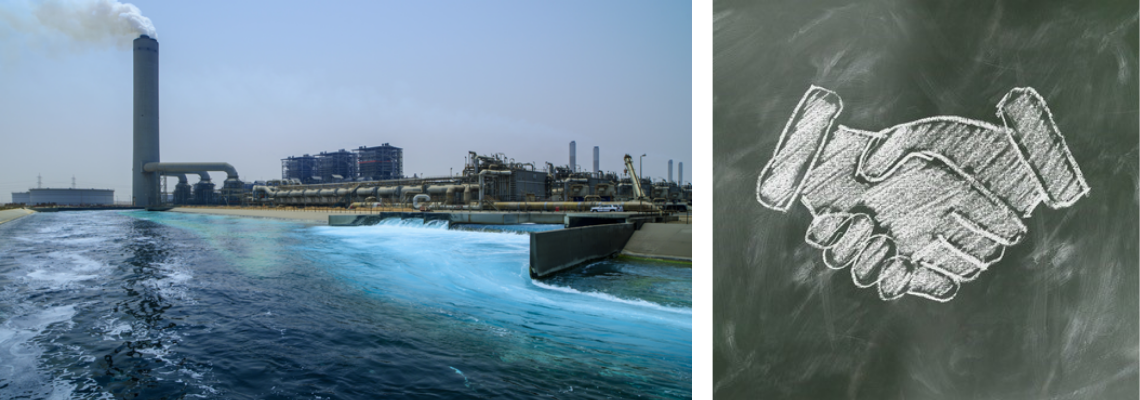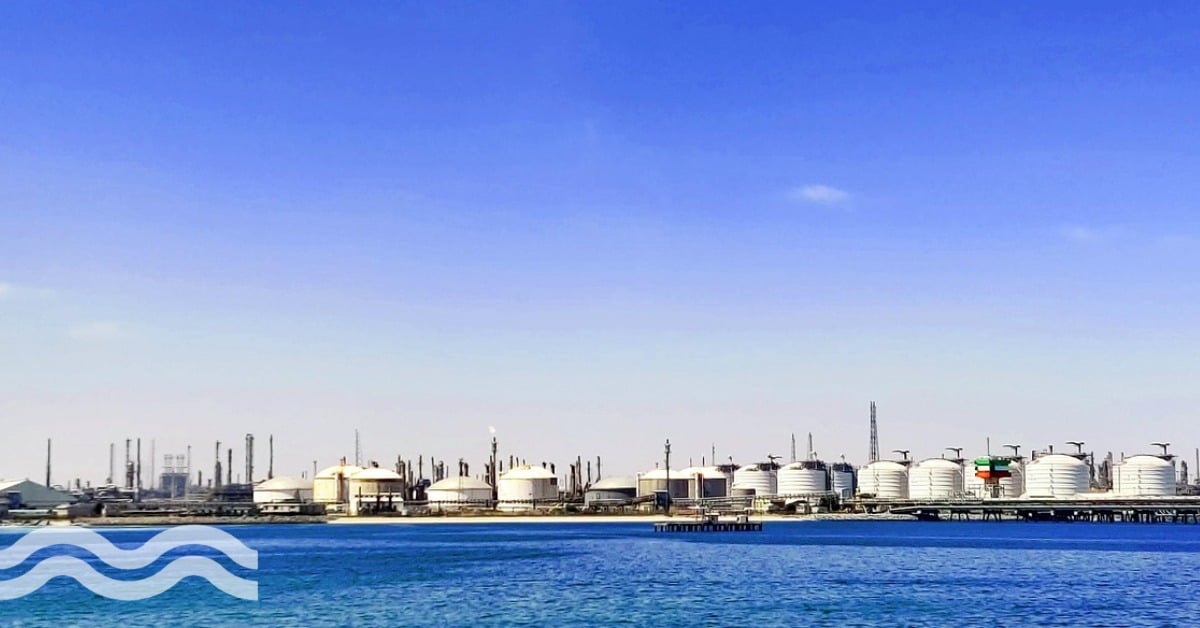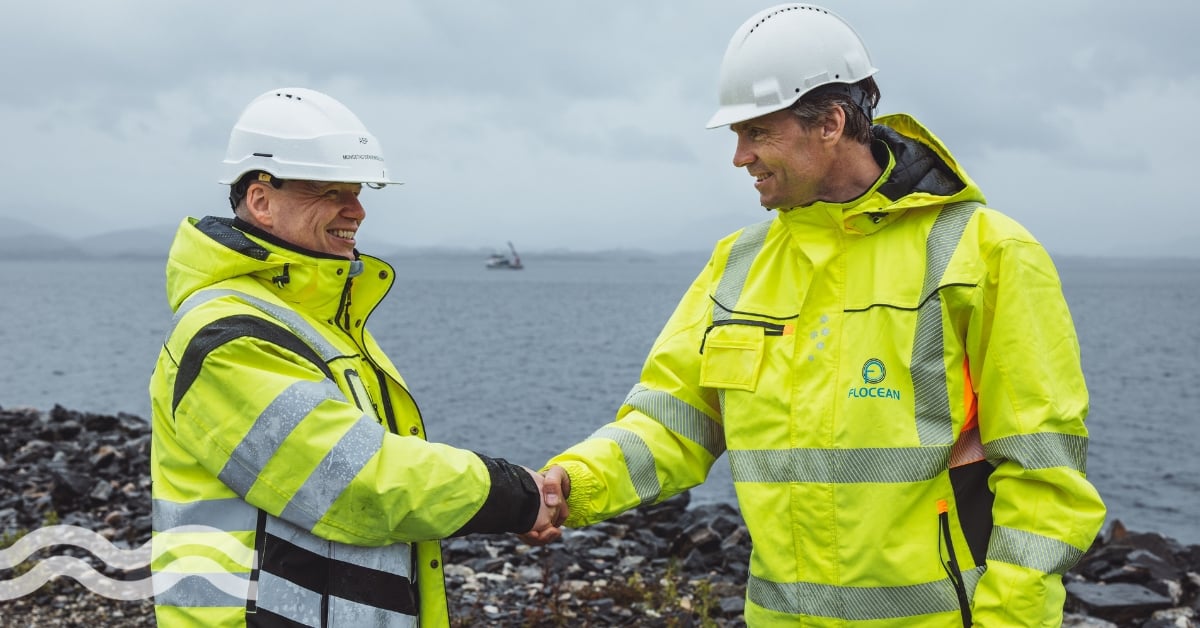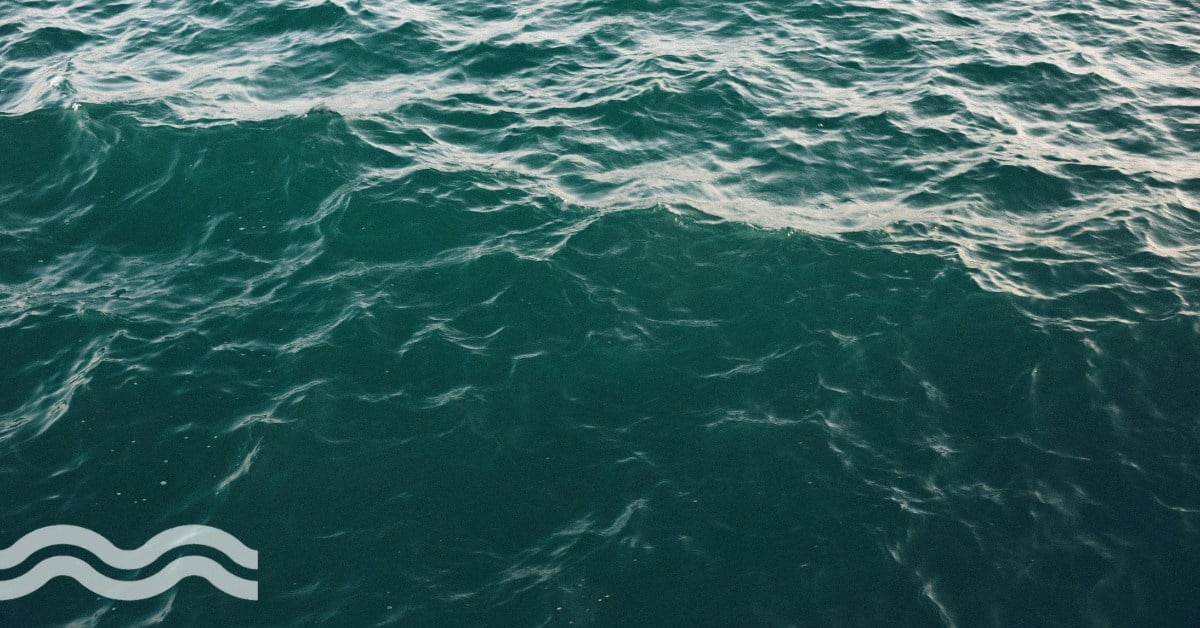Partnership to by-pass chemical treatment for “greener” desalination

ACWA Power and Water Global Access have partnered to develop green water desalination technology.
Exploring green desalination
Water and energy company ACWA Power and research and development company Water Global Access (WGA) have partnered to develop more efficient water desalination technology.
The strategic partnership will see the integration of WGA's Hydraulic Injection Desalination (HID) into ACWA Power's future projects.
It comes as ACWA Power looks to move away with the chemical treatment stage that HID bypasses, potentially requiring less energy compared to existing desalination technologies.
"This partnership with WGA will fast-track the next step-change in energy efficiency to pave the way towards the deployment of greener technologies through innovation, " said Thomas Altmann, EVP Innovation & New Technology of ACWA Power.
“Our goal is to reach society by the end of this year with scalable, robust seawater desalination technology.”
A computational fluid dynamics modelling confirmed that WGA's technology allows for the desalination of 40,000 seawater with parts per million (ppm) with an energy consumption less than 1.9 kWh/m3, which ACWA Power says is almost a third lower than existing Sea Water Reverse Osmosis (SWRO) projects.
"Our goal is to reach society by the end of this year with scalable, robust seawater desalination technology with low maintenance costs and minimal environmental impact, capable of transforming the freshwater paradigm," said Eusebi Nomen, co-founder of WGA.
ACWA Power currently operates 16 water desalination plants, out of which 50 per cent are located in Saudi Arabia, including the country’s largest independent water project and one of the world's largest SWRO desalination plants.
How Saudi Arabia is handling water challenges
While 97 per cent of the population have access to potable water, Saudi Arabia is still classified as one of the most water-scarce nations on the planet.
The absolute water scarcity level is 500 cubic meters per capita, per year and Saudi Arabia has only 89.5 cubic meters per capita, per year.
On top of this, more than half the water used in the country exceeds sustainable levels and 82 per cent of wastewater is not purified for reuse.
In 2019, the country launched a national programme called Qatrah - Arabic for droplets - to cut water consumption by about 43 per cent, to 150 litres per capita, per day by 2030.
Desalination destiny
Saudi Arabia, like a lot of countries in the Middle East and Northern Africa, is looking to invest and improve existing desalination plants. In cities such as Jeddah, desalination supplies 98 per cent of all the water consumed.
“Desalination plants supply 98 per cent of all the water consumed in the city of Jeddah.”
Egypt's cabinet announced recently that Saudi Arabia's Abdul Latif Jameel Energy & Environmental Services and Hassan Allam Holding had submitted an offer to build a desalination plant capable of generating 2.9 million cubic meters of water per day by 2030.
At the start of 2022, it inaugurated the first floating desalination plant near al-Shuqaiq port on the western coast, as part of its water projects to enhance water security in all the Kingdom's regions.
Each station will have a capacity of 50,000 m3/day with a total capacity of 150,000 m3/day, and be able to move along the coastline to areas of the country that need it most.
Related content
- Egypt’s renewable powered desalination plans progress ahead of cop27
- Subsea desalination moves forward following waterise partnership
- Qatar desalination trial provides hope for thermal innovation


